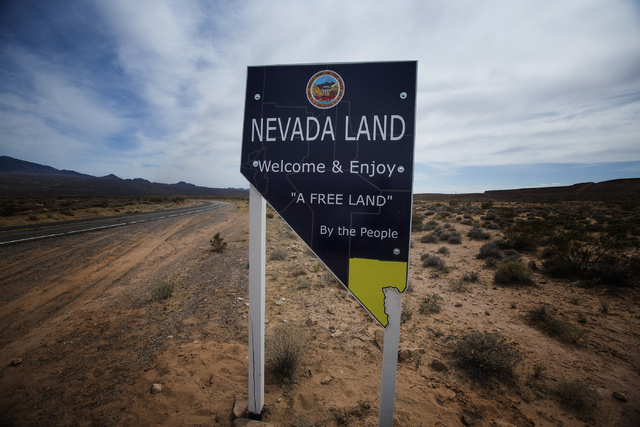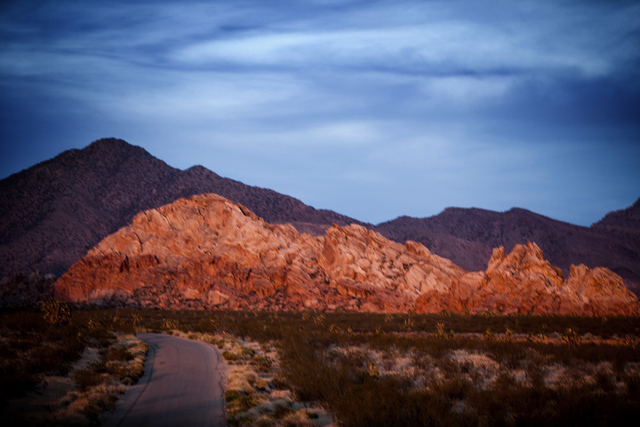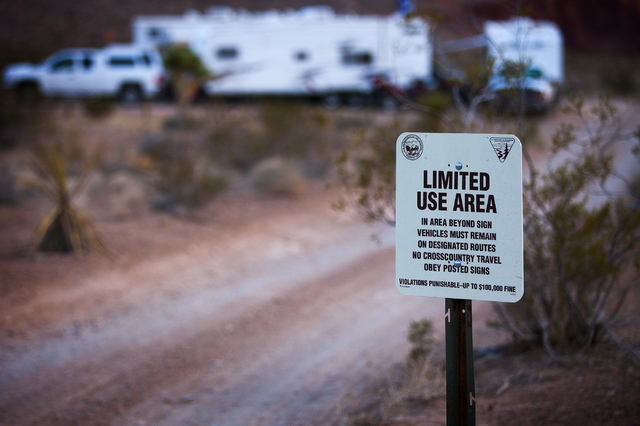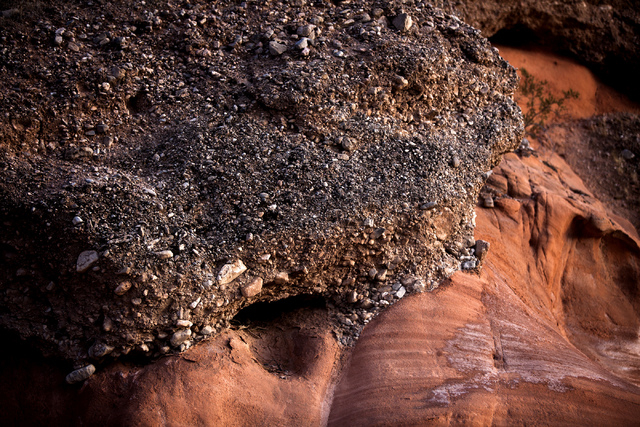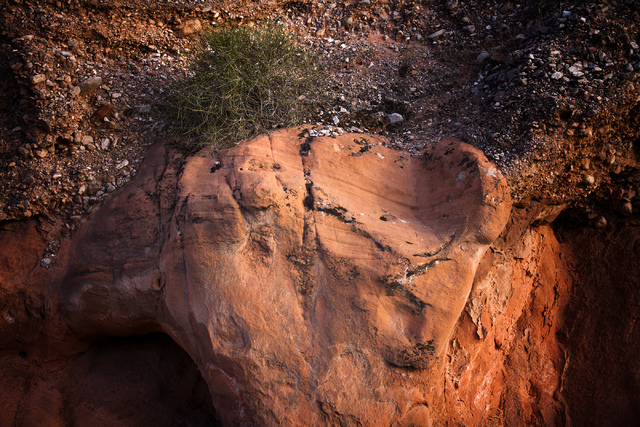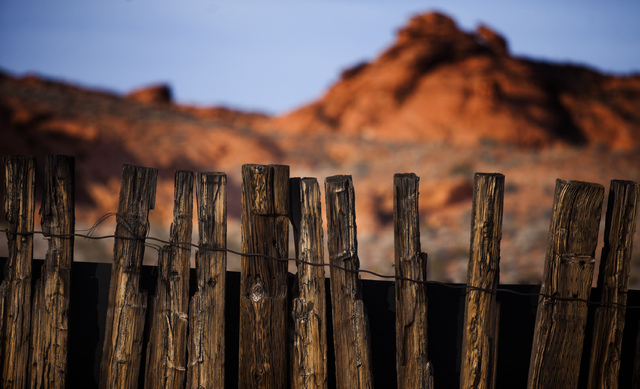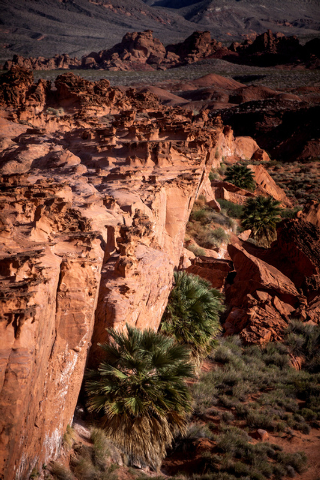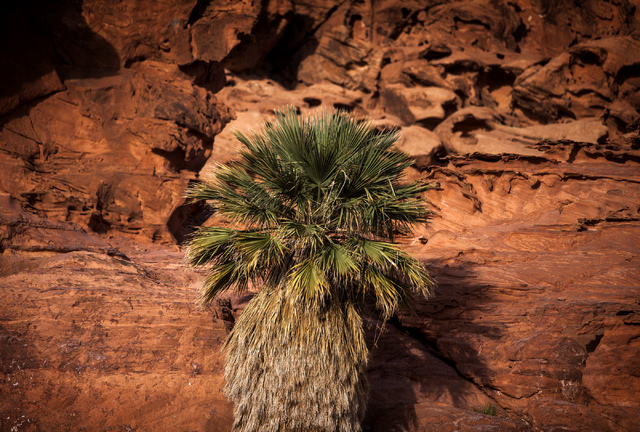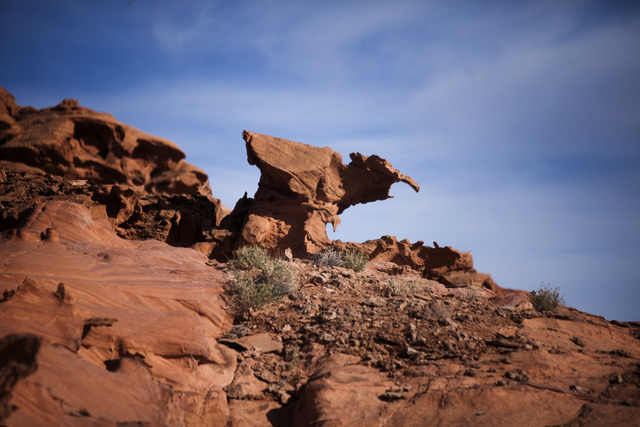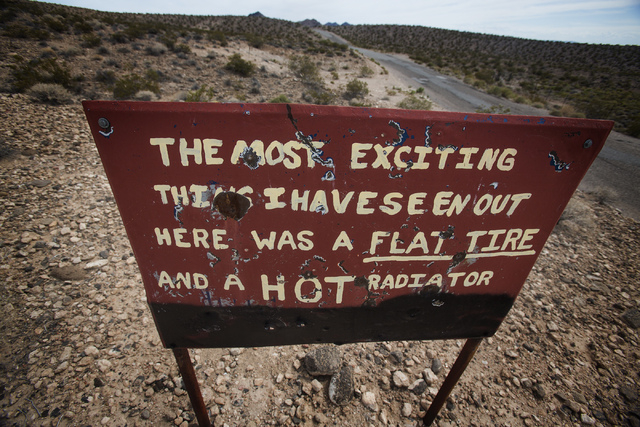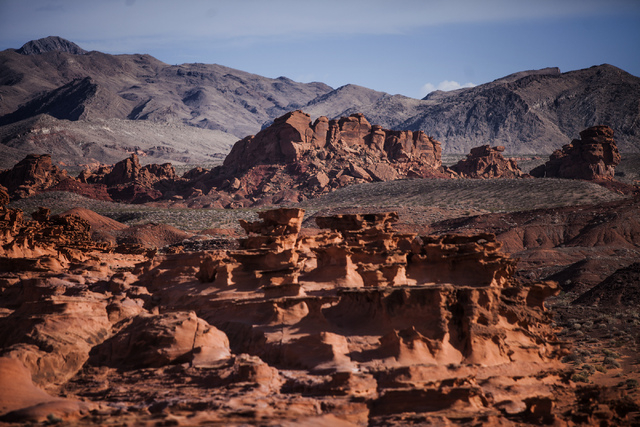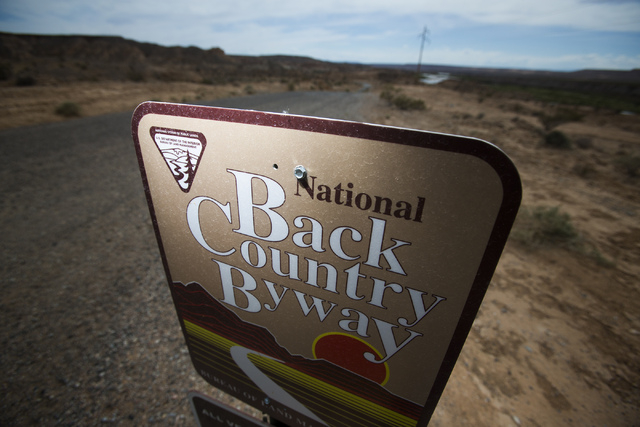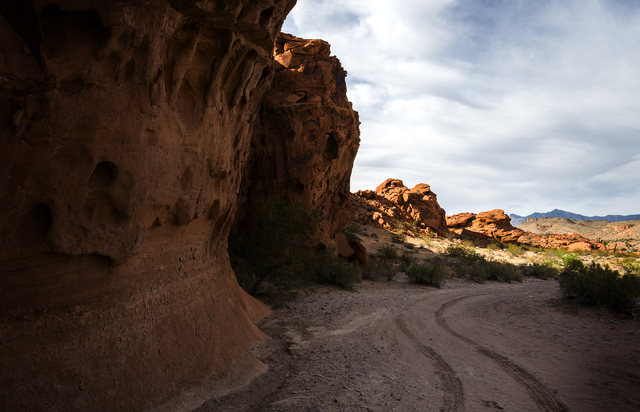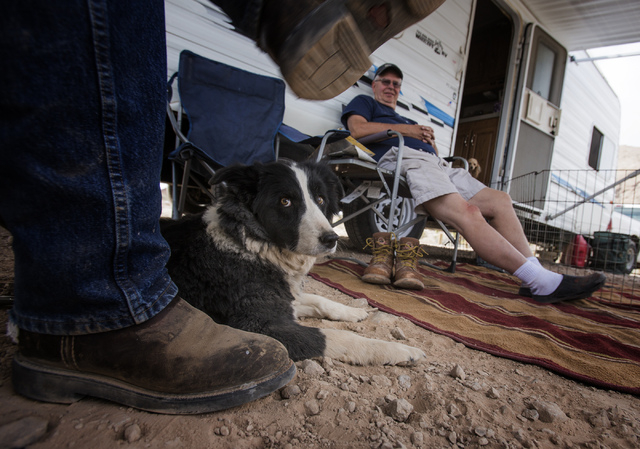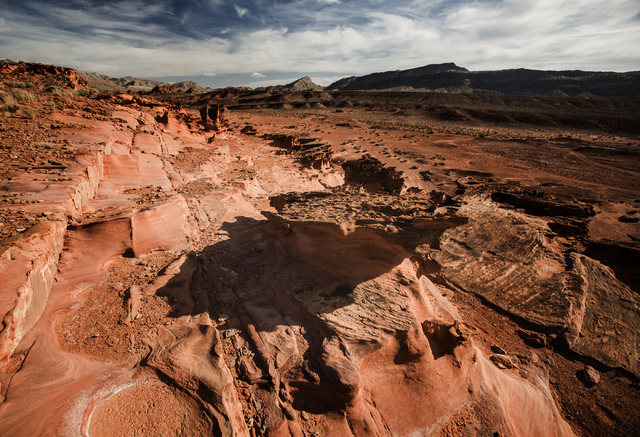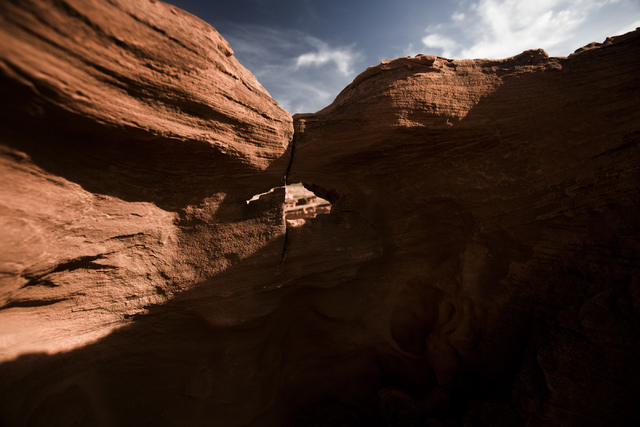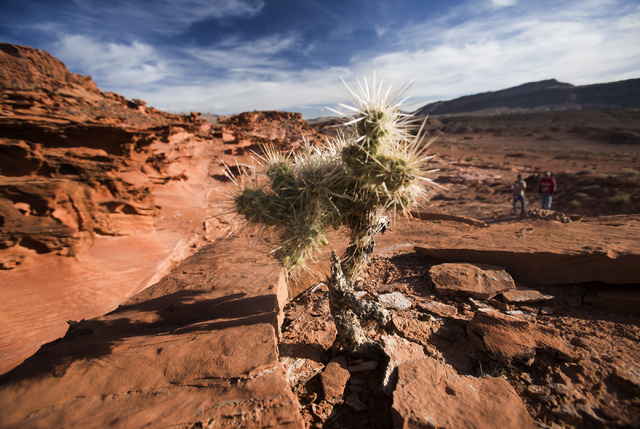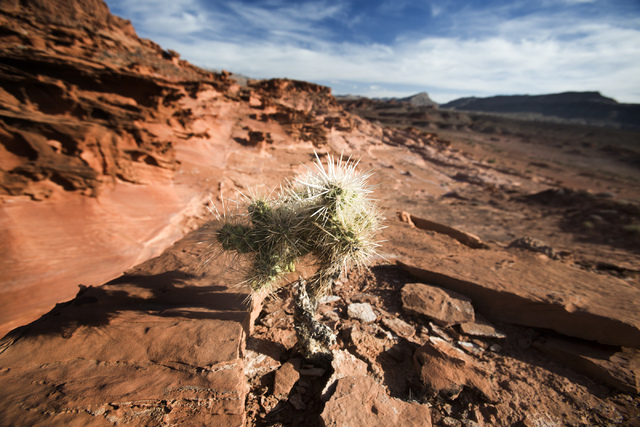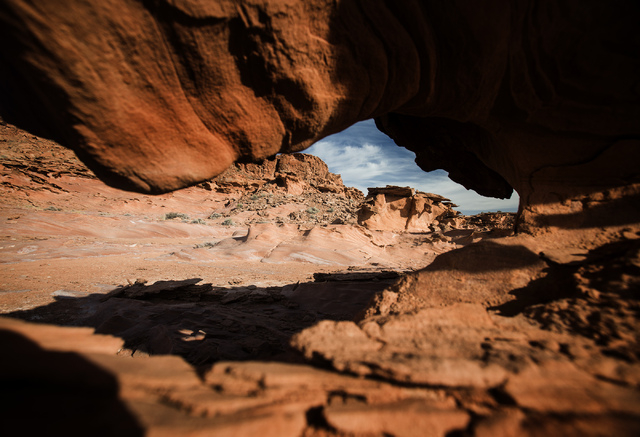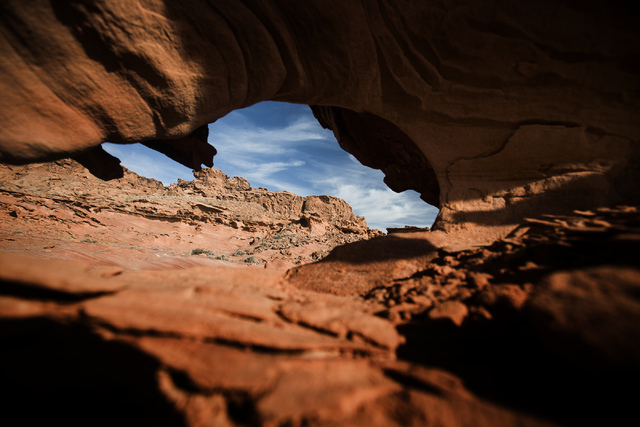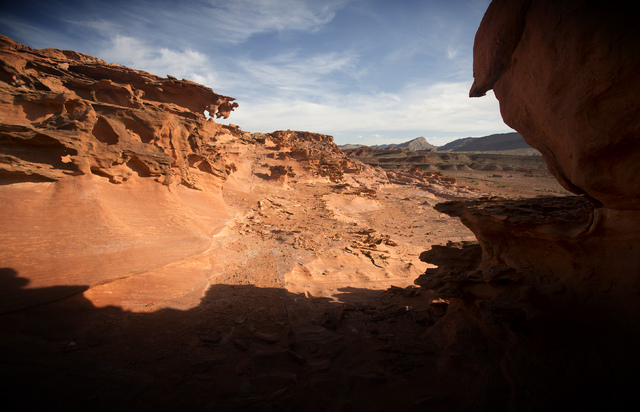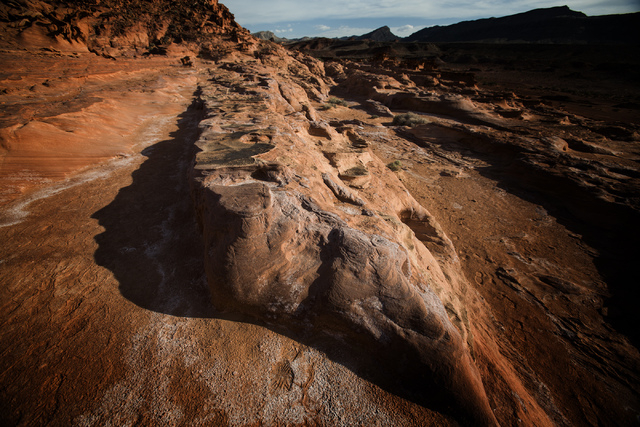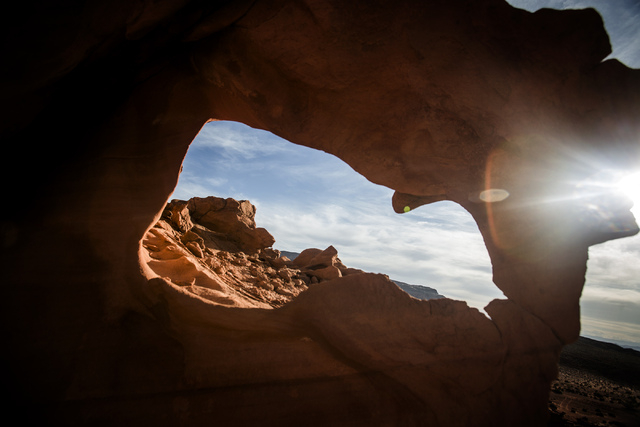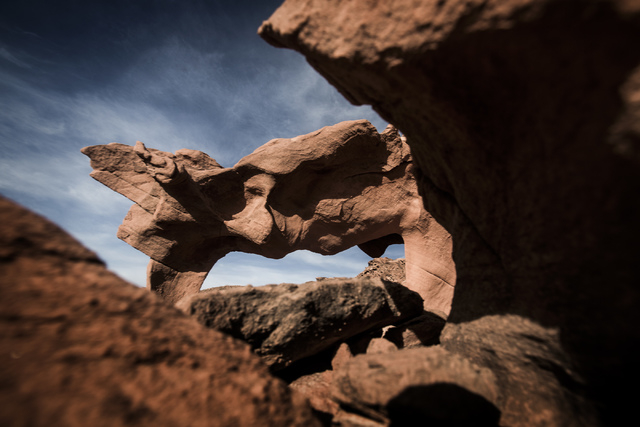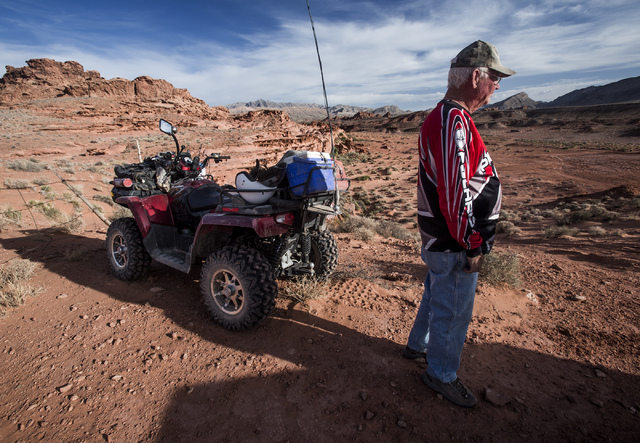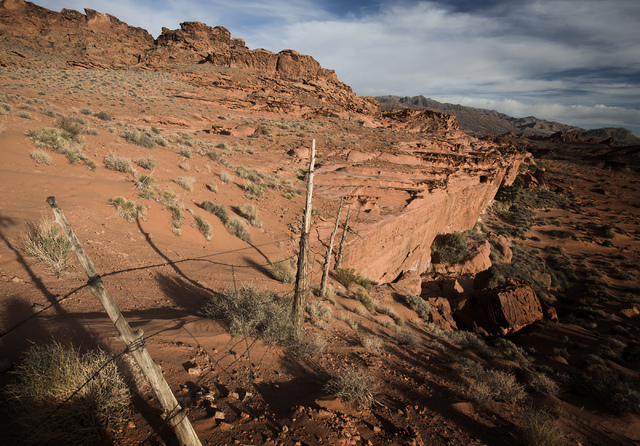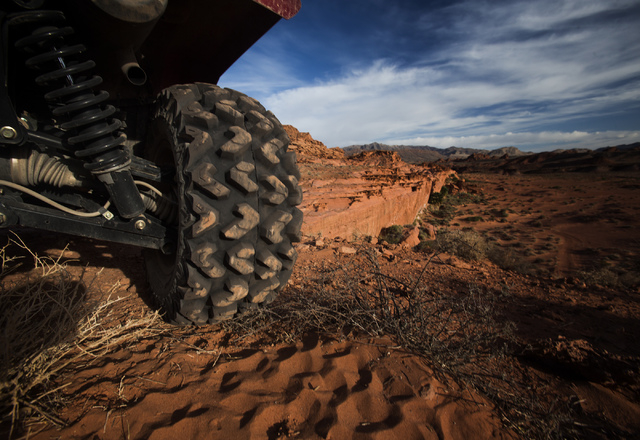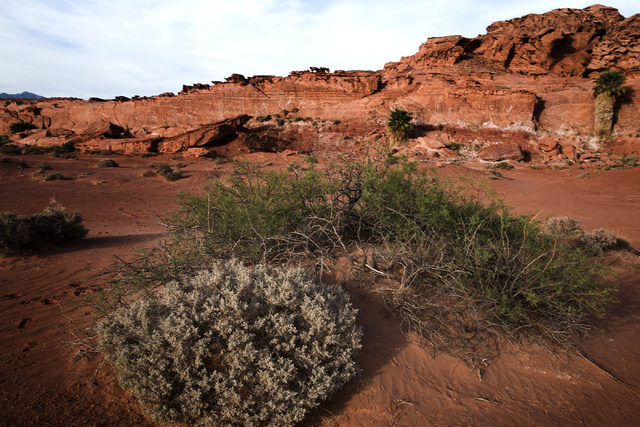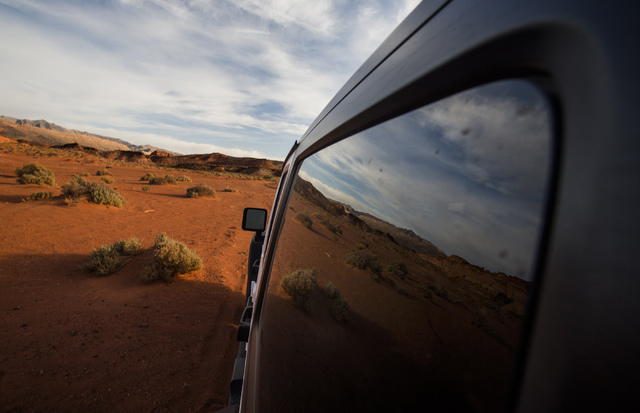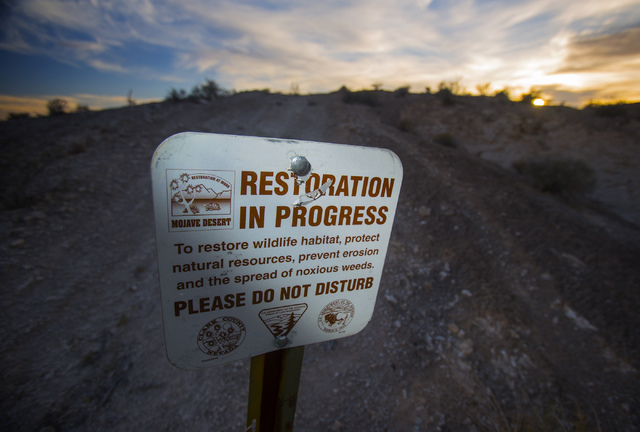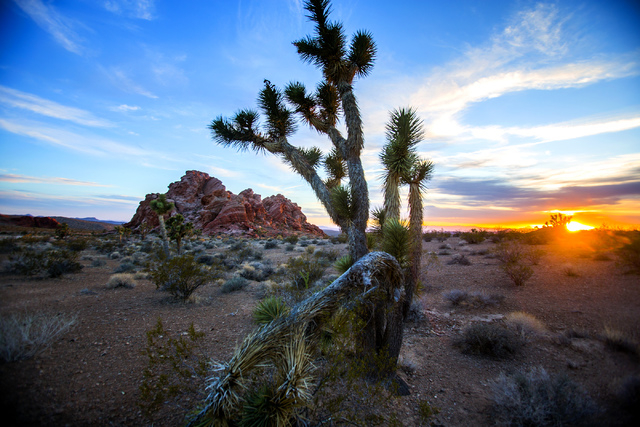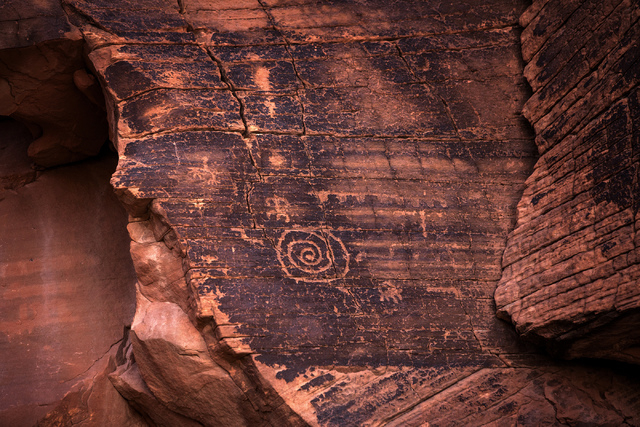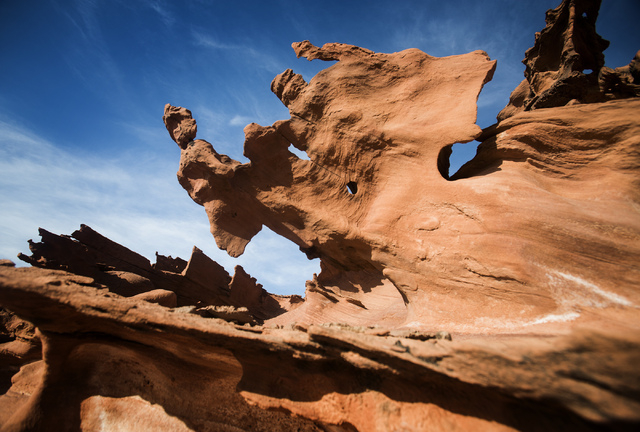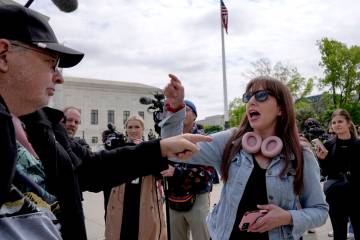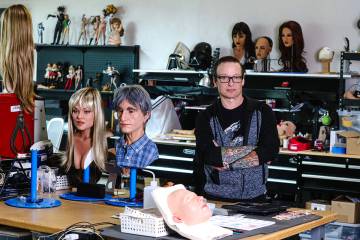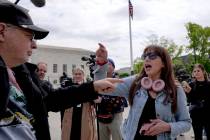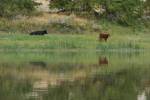ATV users seek protection of their access to scenic, petroglyph-rich Gold Butte
As Cliven Bundy’s cows graze in Gold Butte, environmentalists and all-terrain vehicle riders are looking toward the future of the public land.
Gold Butte, an area rich with dazzling rock formations, ancient petroglyphs and other archaeological features, had long been eyed for conservation efforts well before the April 12 standoff between the rancher’s supporters and federal agents, many of them armed, that captured national attention.
Most of the questions posed in the skirmish’s aftermath have centered on what the federal government will do to resolve its conflict with Bundy, which ended without an agreement. But deeper questions remain about the future of the Gold Butte area itself.
Gold Butte, which gets its namesake from a once-bustling mining town in the area, has rugged, varied scenery that includes Joshua trees, sandstone and yuccas.
Environmentalists don’t expect the 350,000-acre swath of public land to get greater federal protection in the immediate future despite legislation which would do just that. More than a month after the standoff in the Bunkerville area northeast of Las Vegas, armed men still stand watch at the entrance to Bundy’s ranch.
Down the road, campers and ATV drivers were camping on public lands on Memorial Day weekend.
The BLM’s roundup of Bundy’s cattle was short-lived. After the standoff, the Bureau of Land Management backed down and released his cows. Bundy hadn’t paid grazing fees since 1993, and the agency said he owed more than $1 million.
The BLM later said it would pursue judicial and administrative remedies.
ENJOYING THE LAND
The high-profile tensions of April aren’t keeping ATV drivers and recreationists from enjoying Gold Butte, an area that is more than half the size of Rhode Island.
On the Thursday before Memorial Day weekend, Earl Peterson, 71, and his wife, Sharon Peterson, 70, of Mesquite were camping with friends in the Gold Butte area.
Like other ATV drivers, they expressed concerns about the future of accessing roads in the area, where they travel to look at rock formations, petroglyphs and landscape features.
“We respect the area out here,” Peterson said.
As for Bundy’s situation, that doesn’t dissuade them. Like other locals, the Petersons have made their way to his ranch to buy melons.
A proposal in Congress to turn the area into a national conservation area calls for keeping access to roads open in Gold Butte area to ATVs and other off-road users such as jeeps and motor bikes.
All-terrain vehicle riders in Gold Butte say the public land is best kept as is, and they are concerned that tinkering with the arrangement will lead to restrictions that keep them off roads.
Thousands of visitors venture into the Gold Butte area each year, but federal officials don’t track exact numbers. Those would be difficult to come by, as permits aren’t required for hiking and there is no admission fee to enter the area.
Bundy is known for his strong stance against the federal government. But the ATV drivers out at Gold Butte weren’t hard-core Bundy supporters — just lovers of public lands. They said there were mistakes made on both sides of the Bundy clash.
“We like to go out and see all the pretty rocks and desert flowers and the only things we take are pictures and the only things we leave are tracks,” said Bob Hitchcock, who lives near Overton and was camping with the Petersons.
One of Hitchcock’s favorite haunts is Little Finland, an area full of rock formations. Many of them are overhangs, with thin layers of rocks and crevices.
“I think we own this land and we should have access to it,” he said. “We shouldn’t abuse it, nor should anyone take advantage of it and not pay their way. But that’s just my opinion.”
Paul Jackson of Reno, a member and past chairman of the Nevada Off-Highway Vehicle Commission, said most ATV drivers are responsible.
“Most of the people — 99.9 percent — who ride ATVs have an environmental conscience — in other words they want to keep the land good; they want to protect the animals,” he said. “They want to protect the land for their children and grandchildren.”
MORE PROTECTIONS SOUGHT
Nevada’s congressional delegation has been unable to reach an agreement on Gold Butte’s future. U.S. Sen. Harry Reid, D-Nev., introduced legislation in May 2013 to turn the 35,000 acres into a national conservation area. That bill, which would keep all open roads available for vehicle access, hasn’t had a hearing yet.
However, U.S. Sen. Dean Heller, R-Nev., hasn’t supported the bill.
“Gold Butte is a natural treasure and a draw for tourism in Southern Nevada,” Heller spokesman Chandler Smith said in a statement. “While nearly everyone agrees that the area should be preserved so future generations can camp, hike, hunt, and enjoy the cultural resources there, there are strong differences of opinion on how that can be accomplished.
“When it comes to public lands legislation, Senator Heller strongly relies on local opinion and believes that buy-in within the community is extremely important. There is significant opposition to the current proposal at this point that needs to be resolved before he would support moving legislation through Congress.”
Environmentalists don’t expect the designation as a national conservation area to come quickly, especially after the Bundy incident.
Another possibility is to turn the area into a national monument, which could happen more quickly through a presidential order without congressional action.
“It’s going to delay everything because nobody’s willing to go out and wade into the situation and enter into this fight at the present time because almost no matter what happens, everybody sort of gets tar on them,” said John Hiatt, conservation chairman of the Red Rock Audubon Society, which focuses on conserving wildlife habitat.
Hiatt said having the national conservation designation work its way through Congress instead would be better received by the public and “relieve the angst.”
Reid spokeswoman Kristen Orthman, however, said in an email that the roundup hasn’t had an impact, noting the bill has been around for a year.
Reid and the rest of the delegation have been focusing on a set of bipartisan land bills that are Reid’s first priority, Orthman said.
Red Rock Canyon is an example of a national conservation area. The designation typically brings about such things as more signs, additional information about the area and a greater law enforcement presence, all with an eye toward protecting the resource for the future, Hiatt said.
“Those things need to be protected and if you just leave it alone, those things will gradually be damaged,” he said.
Long waits already are familiar territory for environmental causes — including Gold Butte. Friends of Gold Butte, an organization that is devoted to protecting and restoring the area, was formed in 2003.
The national conservation area designation would help the Gold Butte area get more funding and put a clear management plan in place with input from local communities, said Nancy Hall, president of Friends of Gold Butte.
“Everything that’s important takes time and this is how our system works. And when you have to have a lot of conversations in order to put things into law, whether it’s two more years or 10 more years, the conversation will continue for sure because it’s such a special place,” Hall said. “You just keep going. You’ve just got to keep working on things.”
Contact Ben Botkin at bbotkin@reviewjournal.com or 702-405-9781. Follow @BenBotkin1 on Twitter.



